Ultra-luxury RV maker Bowlus is marketing its cheapest and smallest trailer to younger travelers — see inside the $165,000 Rivet
Ultra-luxury RV maker Bowlus's new Rivet is its smallest and cheapest travel trailer.
The $165,000 trailer can go off-grid, off-road, and be remote-controlled, the company says.
Bowlus is targeting younger buyers with its new premium RV model.
Bowlus is known for its ultra-sleek, ultra-luxury RVs with price tags that can rival a house.
To some roadtrippers, a recreational vehicle that costs more than $300,000 might be a little out of the price range.
But if you fall into this camp, Bowlus has a counteroffer: the new Rivet, its smallest and cheapest travel trailer.
In early March, the California-based RV maker unveiled the new "rugged" model with all-terrain tires, remote-control capabilities, and a more manageable starting price of $165,000.
Compared to Bowlus’s two other models, this new tiny home on wheels is being sold at a steep discount.
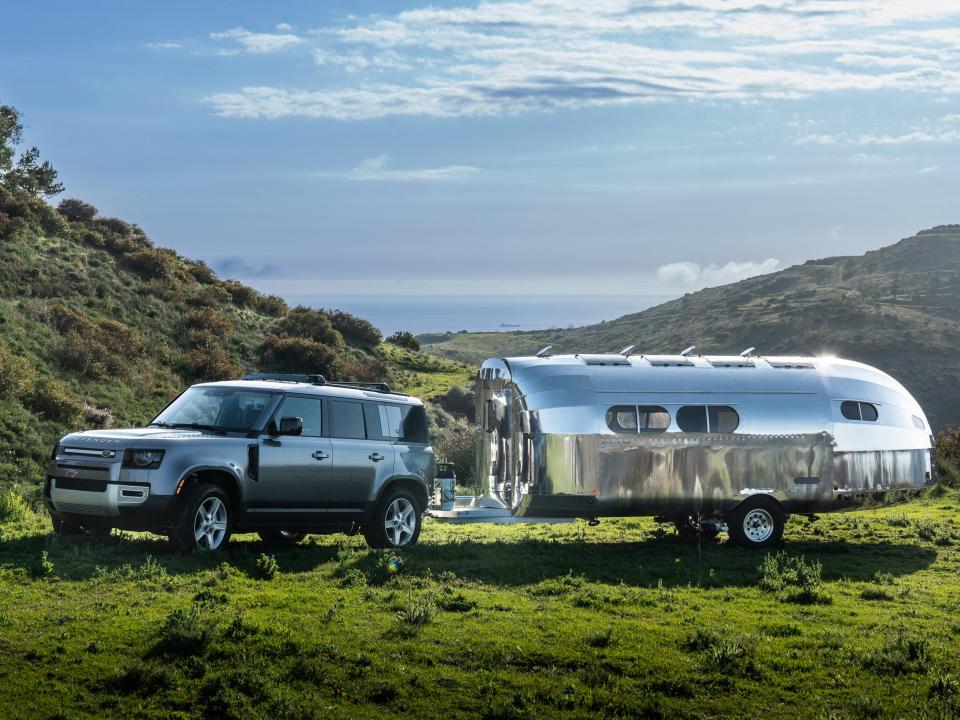
The company's most expensive RV, the Volterra, starts at $310,000.
That's almost double the cost of the newer and smaller Rivet. The lower price is intended to open Bowlus to more customers, Geneva Long, the company's CEO, told Business Insider.
And yet, compared to other travel trailers, the Rivet's isn't cheap either.
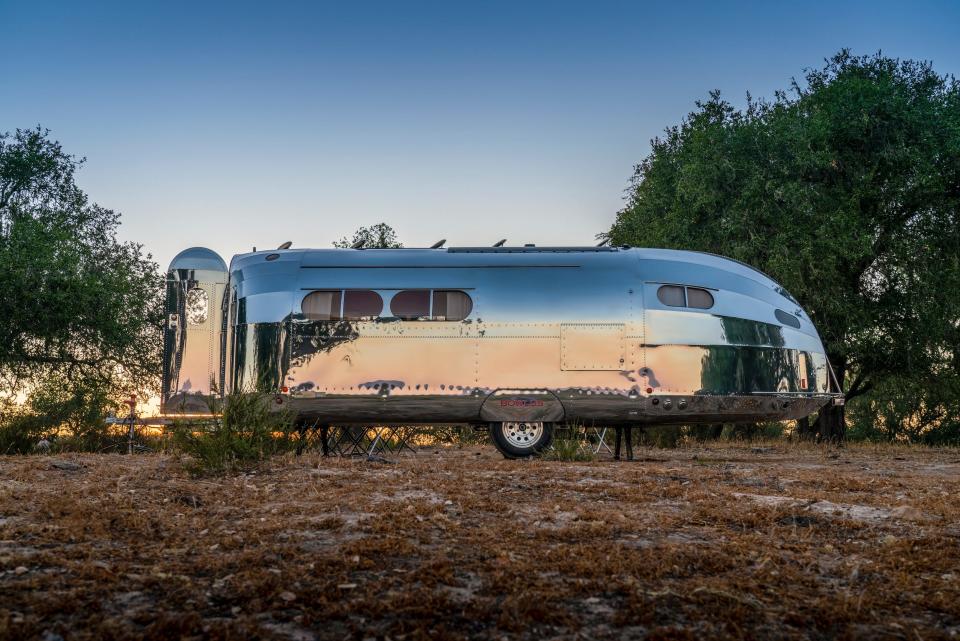
New 2024 travel trailers currently start at about $13,000 with RV dealership Camping World, although these models aren't nearly as shiny as Bowlus' aluminum trailers.
Like Bowlus, legacy RV maker Airstream loves cladding its trailers with aluminum. And depending on the model, the latter could be a more economical option: Its Trade Wind, which is three inches shorter than the Rivet, starts at $129,400.
However, Long says Bowlus' manufacturing methods — like the in-house production of its RVs' steel frames and more than 70% of its parts — justify its price. Plus, she says Bowlus' products are durable: No need to "flip" one every few years "as a standard in the industry."
Bowlus' customers can range from young families to retirees, Long said.
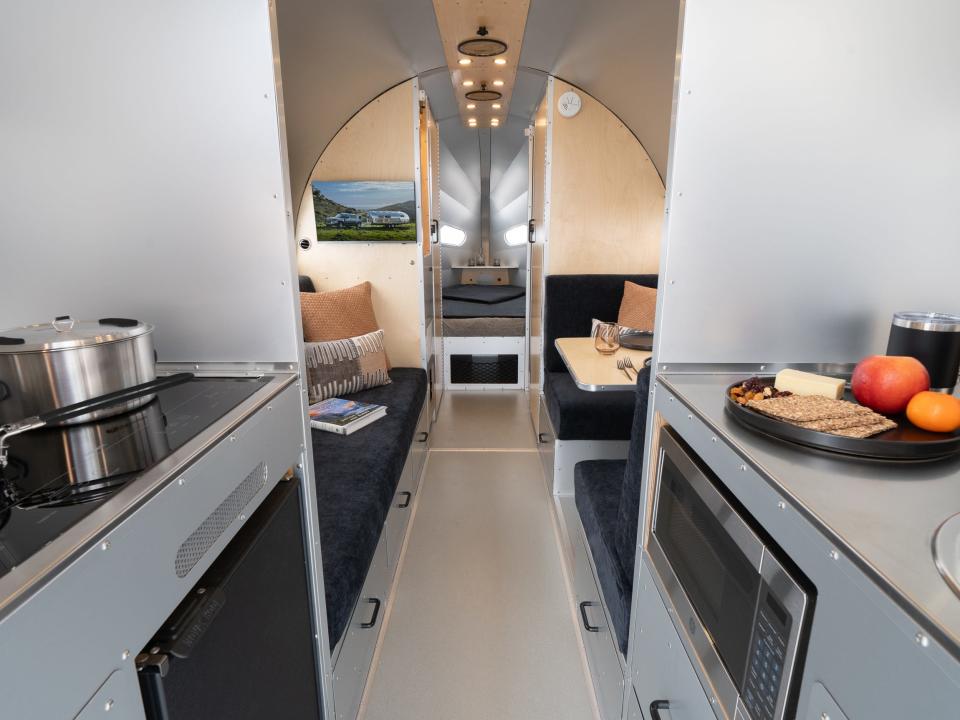
Long hopes Bowlus can appeal to younger buyers with the rollout of the less expensive Rivet.
It's a strategic decision: There's been an influx of Gen Z and millennial RVers. And they're pining for an upgrade: 84% of 18-to-34-year-olds who own an RV said they intend to buy another one in the next few years, according to a 2021 survey from trade group RV Industry Association.
Long said many of these younger buyers crave RVs that offer what the Rivet has: off-grid and off-road capabilities.
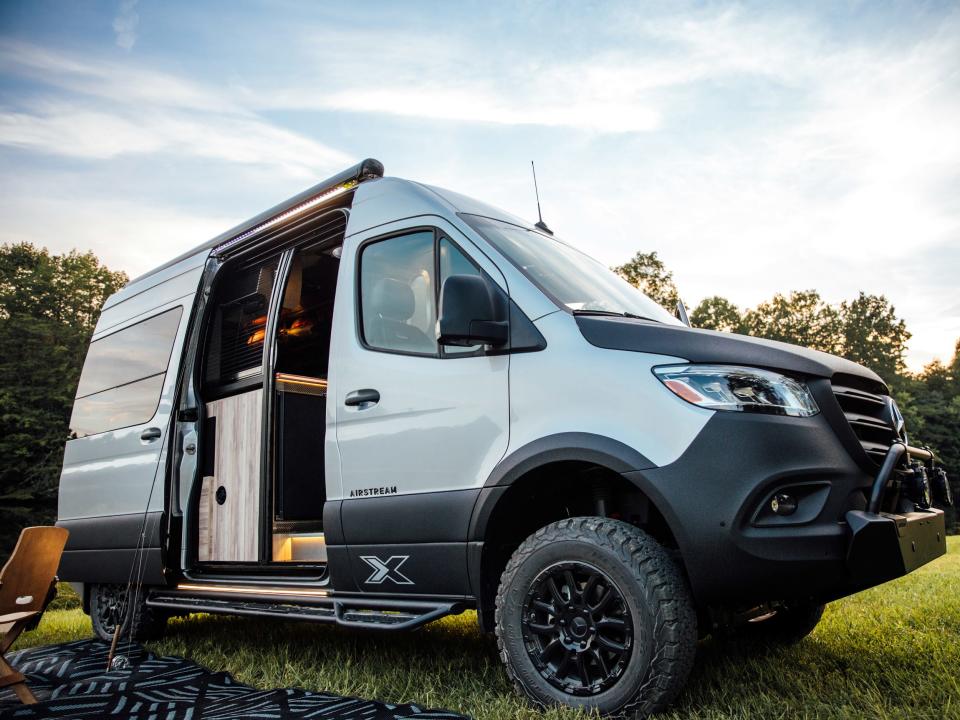
But it's not the first to explore this off-road route.
Over the last few years, several legacy RV makers have launched products with similar capabilities, some more rugged than the Rivet.
This includes Airstream's Interstate 19X camper van was built for boondocking. The Mercedes Ben Sprinter-based RV starts at $199,940.
But for travelers who'd rather prioritize affordability, Winnebago says its $64,421 Micro Minnie FLX travel trailer can go off-grid for five days with the help of power systems like 400-watt solar panels and a 320-amp-hour lithium-ion battery.
And if they're desperate to relive their childhood memories of playing with remote-controlled Hot Wheels could scratch that itch with the Rivet.
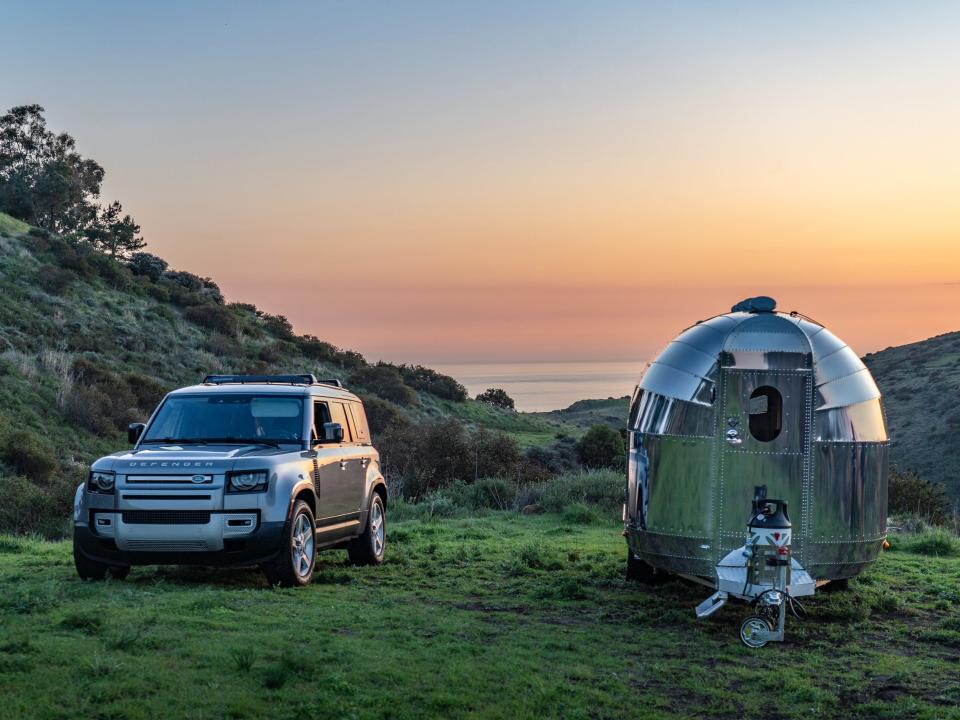
Who needs toy cars when you have an RV? The new travel trailer can be driven into campsites or parking spots using a handheld remote — although it'll add another $10,000 onto the base cost.
With amenities like a remote control, Rivet was designed to fit in the “premium” RV segment.
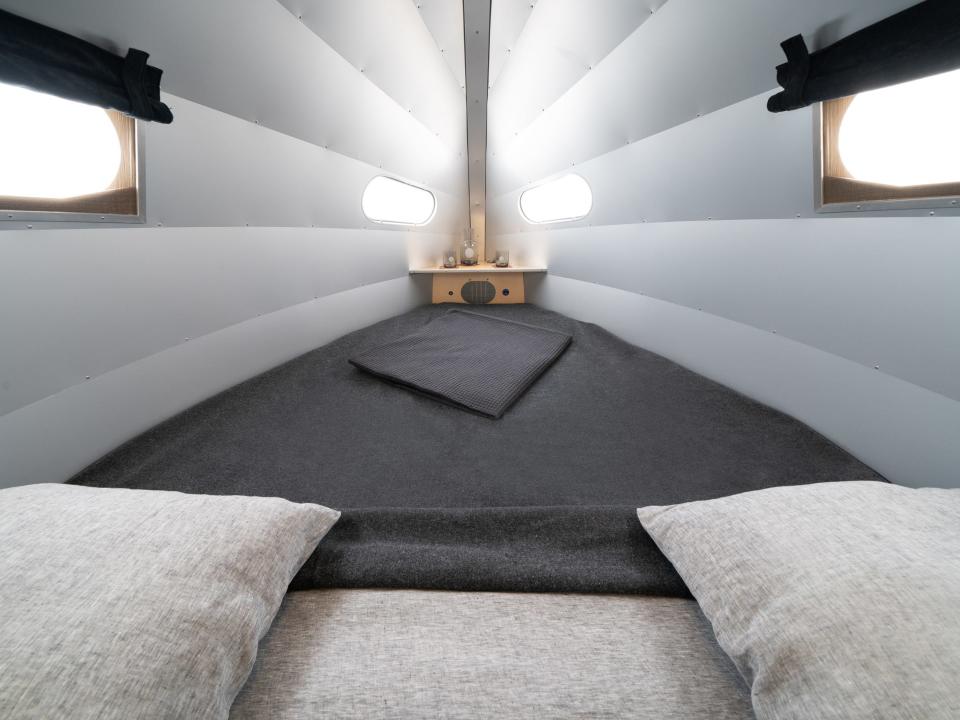
This isn't Bowlus' first attempt at a more affordable build.
In early 2023, it unveiled another travel trailer, Heritage, at the same price point as the Rivet. However, the model was discounted "because Bowlus only likes to offer three models at a time," Long told Business Insider in an email.
The Rivet would’ve had some similarities to the Heritage, like its 25.25-foot length and 3,500-pound weight.
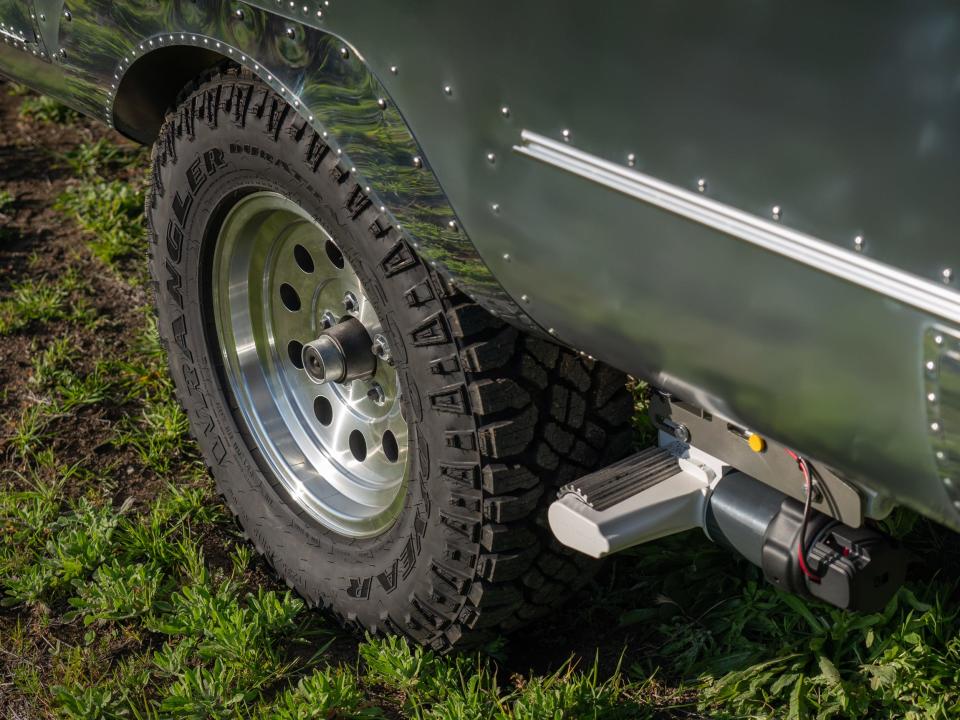
But unlike its predecessor, the new build is ready to go off-grid and onto dirt roads: The RV comes with a three-inch lift kit and all-terrain tires.
Traditional home luxuries have all been condensed into the new 6.7-foot-wide trailer.
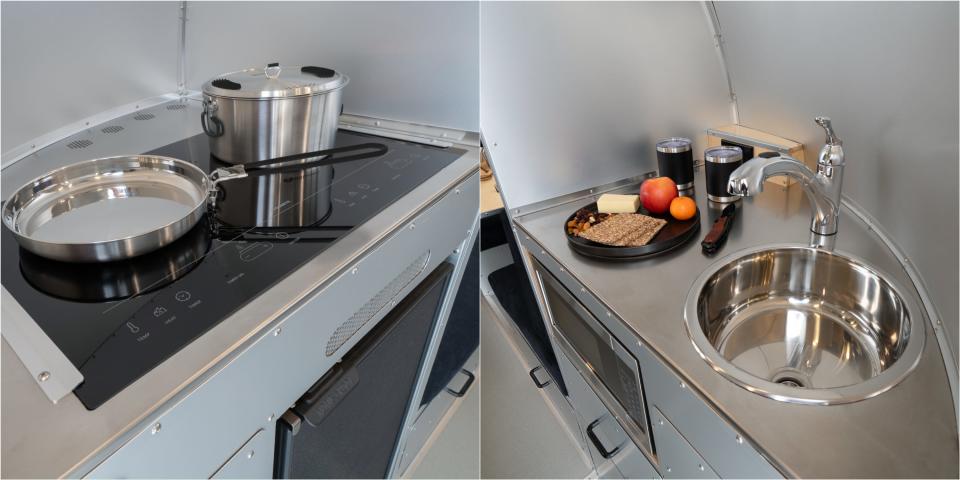
The RV has four distinct spaces: a bedroom, bathroom, living room, and kitchen.
Travelers can enjoy home-cooked meals at the living room's dining table or sofa.
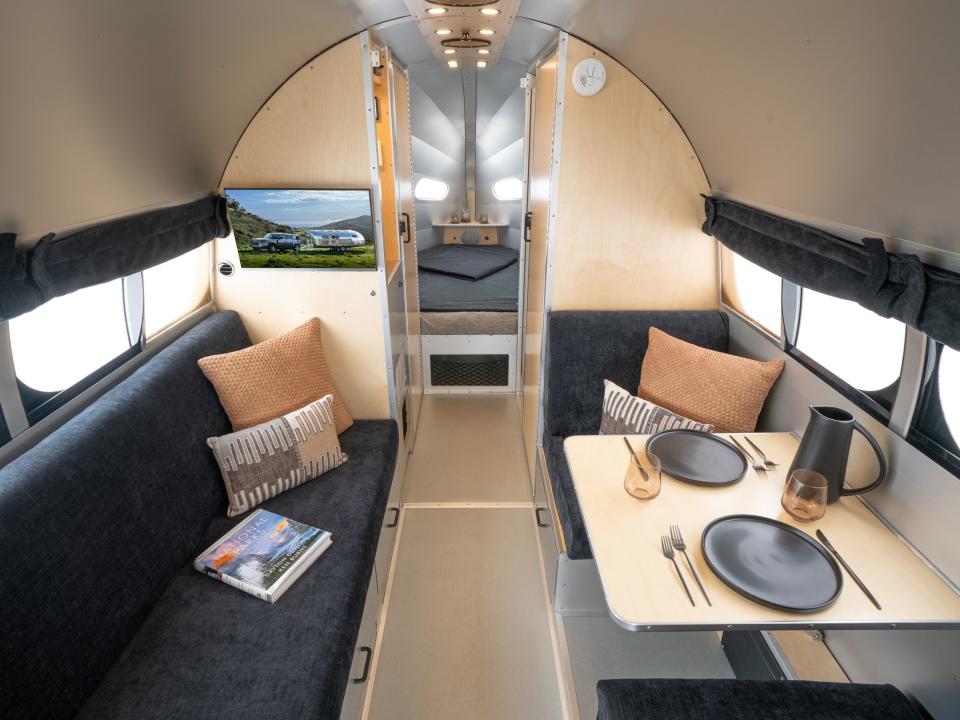
The space also doubles as a second bedroom: Both sides can convert into extra beds.
No more "going outside": The trailer also has a shower and cassette toilet.
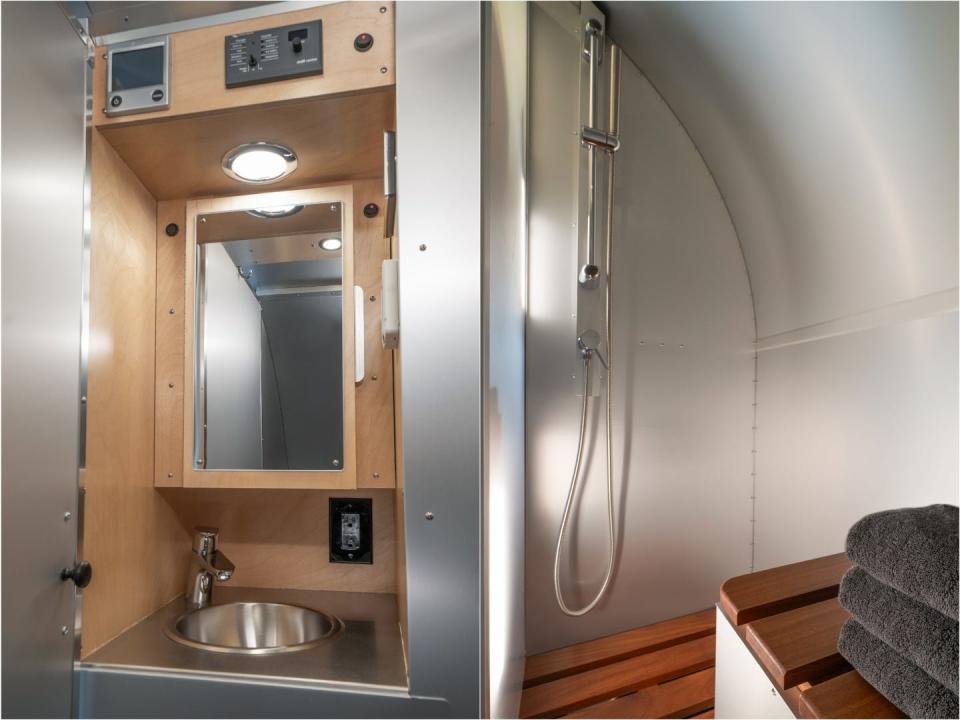
Water in the bathroom and kitchen is sourced and dumped into the trailer's 19-gallon freshwater, 21-gallon gray water, and 4.5-gallon black water tanks.
All of these amenities are powered by the RV's eight-kilowatt-hour lithium battery, 3,000-watt inverter, and up to 660 watts of solar.
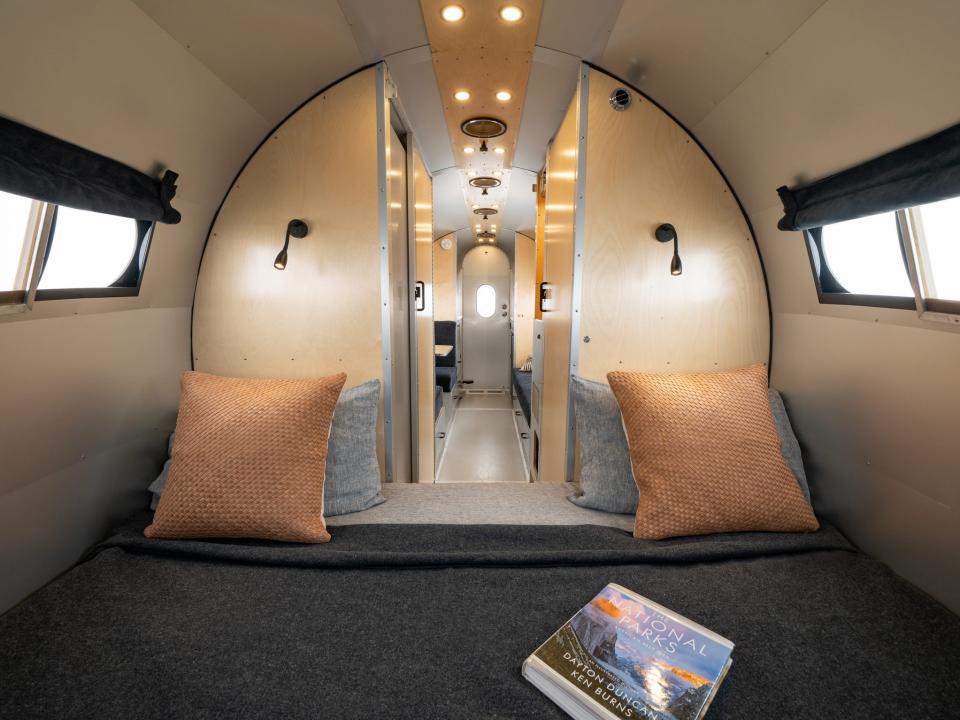
To achieve full solar capabilities, travelers must purchase the $875 130-watt "solar suitcase" upgrade.
With it, the trailer's power system could sustain most of its amenities — like the refrigerator and laptop chargers — off-grid indefinitely, Long said.
However, it can only support about 16 hours of air conditioning, she said, noting that it's common for travelers to use it for about four hours a day. (If needed, the RV can be charged with a separate generator.)
For companies like Bowlus, now is potentially a good time to grow a travel trailer business.
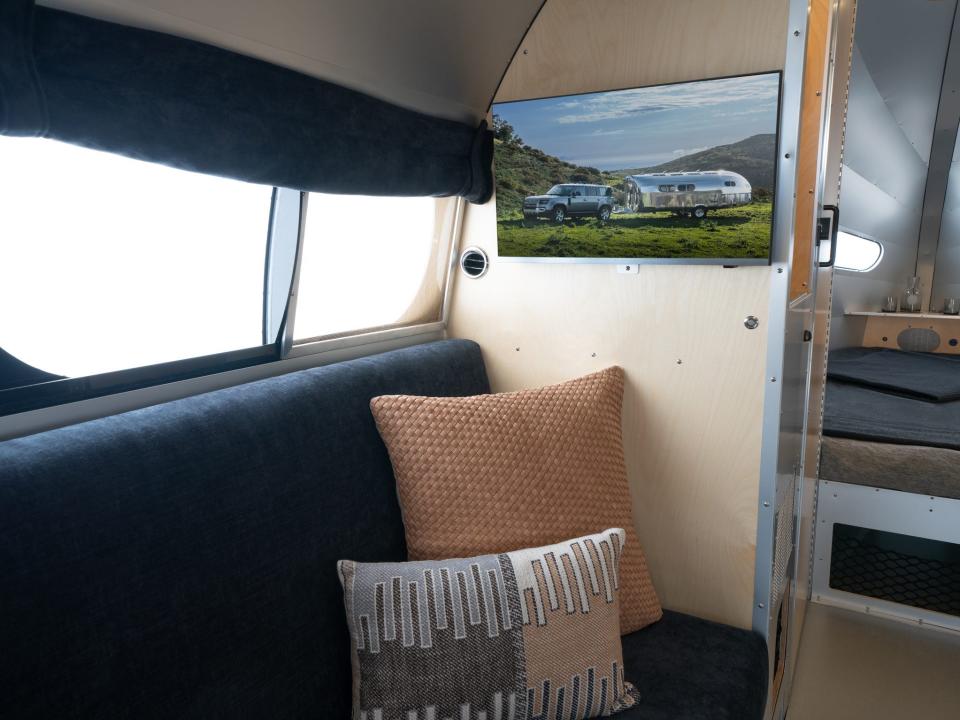
Shipments of motorhomes — which include the previously ultra-popular camper vans — dipped 26.5% in January compared to the same time in 2023, according to data from the RV Industry Association.
In the same period, shipments of travel trailers ballooned by 27.3%.
RV sales have since slumped — or “normalized” — following their massive spike during the COVID-19 pandemic.

But Long says Bowlus was unaffected by this otherwise industry-wide dip.
At the end of 2023, the RV maker added five dealerships to its network, which now spans across the US.
Read the original article on Business Insider

 Yahoo News
Yahoo News 
